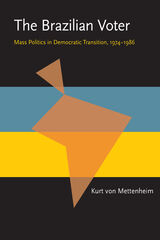
This book argues that whereas military government stifled democratic activity, public opinion quickly revived when the military liberalized electoral politics in 1974. Voters rapidly aligned themselves with parties for and against military government, acquired new views on major issues, judged leaders by their performance and policies, and grounded their beliefs in concepts of social justice. Kurt von Mettenheim examines how Brazilian voters make choices and cast their ballots runs counter to long-held liberal theories about how democracy works.
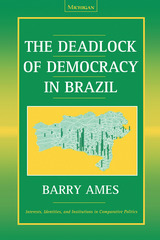
The book combines extensive use of new sources of data, ranging from historical and demographic analysis in focused comparisons of individual states to unique sources of data for the exploration of legislative politics. The discussion of party discipline in the Chamber of Deputies is the first multivariate model of party cooperation or defection in Latin America that includes measures of such important phenomena as constituency effects, pork-barrel receipts, ideology, electoral insecurity, and intention to seek reelection. With a unique data set and a sophisticated application of rational choice theory, Barry Ames demonstrates the effect of different electoral rules for election to Brazil's legislature.
The readership of this book includes anyone wanting to understand the crisis of democratic politics in Brazil. The book will be especially useful to scholars and students in the areas of comparative politics, Latin American politics, electoral analysis, and legislative studies.
Barry Ames is the Andrew Mellon Professor of Comparative Politics and Chair, Department of Political Science, University of Pittsburgh.
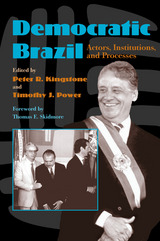
After 21 years of military rule, Brazil returned to democracy in 1985. Over the past decade and a half, Brazilians in the Nova República (New Republic) have struggled with a range of diverse challenges that have tested the durability and quality of the young democracy. How well have they succeeded? To what extent can we say that Brazilian democracy has consolidated? What actors, institutions, and processes have emerged as most salient over the past 15 years? Although Brazil is Latin America's largest country, the world's third largest democracy, and a country with a population and GNP larger than Yeltsin's Russia, more than a decade has passed since the last collaborative effort to examine regime change in Brazil, and no work in English has yet provided a comprehensive appraisal of Brazilian democracy in the period since 1985.
Democratic Brazil analyzes Brazilian democracy in a comprehensive, systematic fashion, covering the full period of the New Republic from Presidents Sarney to Cardoso. Democratic Brazil brings together twelve top scholars, the “next generation of Brazilianists,” with wide-ranging specialties including institutional analysis, state autonomy, federalism and decentralization, economic management and business-state relations, the military, the Catholic Church and the new religious pluralism, social movements, the left, regional integration, demographic change, and human rights and the rule of law. Each chapter focuses on a crucial process or actor in the New Republic, with emphasis on its relationship to democratic consolidation. The volume also contains a comprehensive bibliography on Brazilian politics and society since 1985. Prominent Brazilian historian Thomas Skidmore has contributed a foreword to the volume.
Democratic Brazil speaks to a wide audience, including Brazilianists, Latin Americanists generally, students of comparative democratization, as well as specialists within the various thematic subfields represented by the contributors. Written in a clear, accessible style, the book is ideally suited for use in upper-level undergraduate courses and graduate seminars on Latin American politics and development.
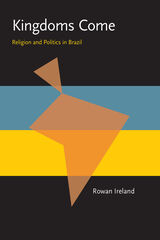
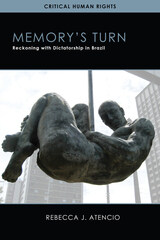
In clear and engaging prose, Rebecca J. Atencio tells the story of the slow turn to memory in Brazil, a turn that has taken place in both politics and in cultural production. She shows how testimonial literature, telenovelas, literary novels, theatrical plays, and memorials have interacted with policies adopted by the Brazilian state, often in unexpected ways. Under the right circumstances, official and cultural forms of reckoning combine in Brazil to produce what Atencio calls cycles of cultural memory. Novel meanings of the past are forged, and new cultural works are inspired, thus creating the possibility for further turns in the cycle.
The first book to analyze Brazil’s reckoning with dictatorship through both institutional and cultural means, Memory’s Turn is a rich, informative exploration of the interplay between these different modes of memory reconstruction.
Winner, Alfred B. Thomas Award, Southeastern Council of Latin American Studies
Honorable Mention, Roberto Reis Book Prize, Brazilian Studies Association
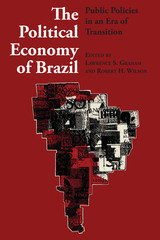
The transition from authoritarian to democratic government in Brazil unleashed profound changes in government and society that cannot be adequately understood from any single theoretical perspective. The great need, say Graham and Wilson, is a holistic vision of what occurred in Brazil, one that opens political and economic analysis to new vistas. This need is answered in The Political Economy of Brazil, a groundbreaking study of late twentieth-century Brazilian issues from a policy perspective.
The book was an outgrowth of a year-long policy research project undertaken jointly by the Lyndon B. Johnson School of Public Affairs and the Teresa Lozano Long Institute of Latin American Studies, both at the University of Texas at Austin. In this book, several noted scholars focus on specific issues central to an understanding of the political and economic choices that were under debate in Brazil. Their findings reveal that for Brazil the break with the past—the authoritarian regime—could not be complete due to economic choices made in the 1960s and 1970s, and also the way in which economic resources committed at that time locked the government into a relatively limited number of options in balancing external and internal pressures.
These conclusions will be important for everyone working in Latin American and Third World development.
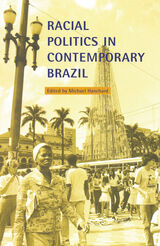
The contributors to Racial Politics in Contemporary Brazil examine such topics as the legacy of slavery and its abolition, the historical impact of social movements, race-related violence, and the role of Afro-Brazilian activists in negotiating the cultural politics surrounding the issue of Brazilian national identity. These essays also provide comparisons of racial discrimination in the United States and Brazil, as well as an analysis of residential segregation in urban centers and its affect on the mobilization of blacks and browns. With a focus on racialized constructions of class and gender and
sexuality, Racial Politics in Contemporary Brazil reorients the direction of Brazilian studies, providing new insights into Brazilian culture, politics, and race relations.
This volume will be of importance to a wide cross section of scholars engaged with Brazil in particular, and Latin American studies in general. It will also appeal to those invested in the larger issues of political and social movements centered on the issue of race.
Contributors. Benedita da Silva, Nelson do Valle Silva, Ivanir dos Santos, Richard Graham, Michael Hanchard, Carlos Hasenbalg, Peggy A. Lovell, Michael Mitchell, Tereza Santos, Edward Telles, Howard Winant
READERS
Browse our collection.
PUBLISHERS
See BiblioVault's publisher services.
STUDENT SERVICES
Files for college accessibility offices.
UChicago Accessibility Resources
home | accessibility | search | about | contact us
BiblioVault ® 2001 - 2024
The University of Chicago Press









